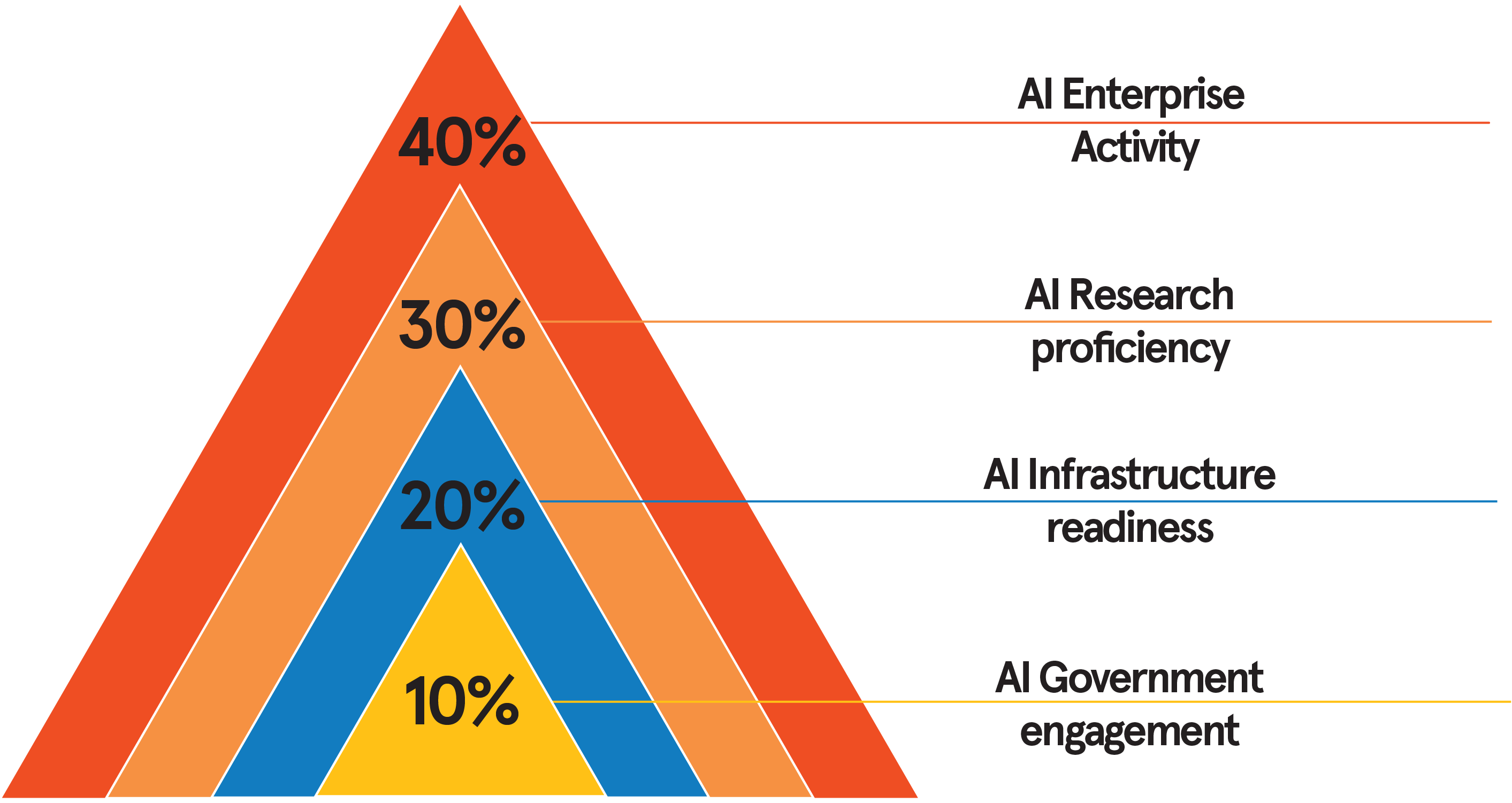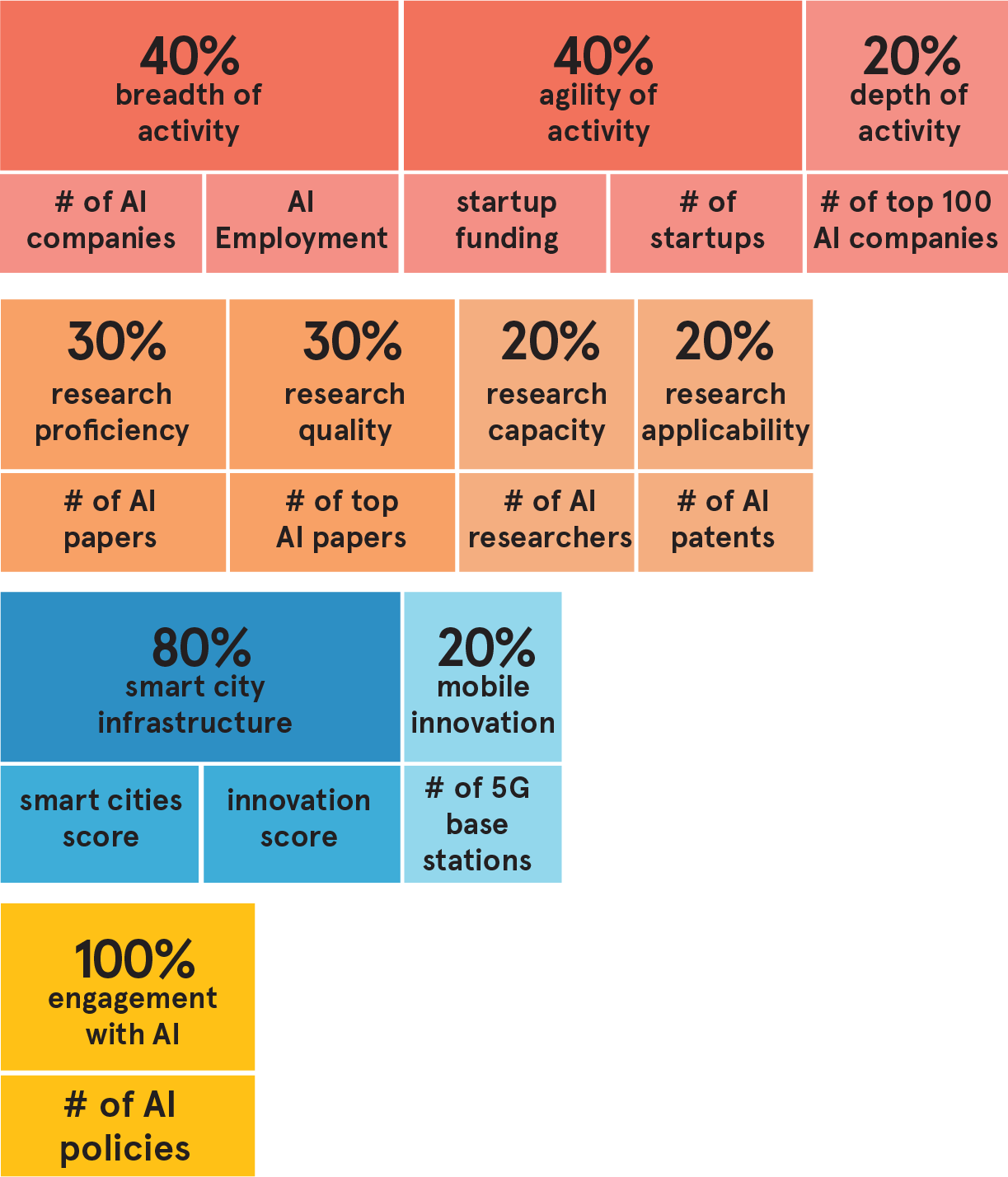Intelligent Cities Index
China 2020
Assessing the artificial intelligence capabilities of Chinese cities.
We coined the term intelligent cities to refer to the capacity of a particular city for engaging with artificial intelligence (AI) as a national priority.
Under this definition a city is an intelligent city if it has built significant capacity in one or all areas of:
- Enterprise and business
- Research and innovation
- Government policy, and/or
- Enabling infrastructure
More than just a smart city (one that employs technology to provide intelligent infrastructure) an intelligent city is a broader concept that also captures how AI is developed and supported through research, business and government, not merely a city’s infrastructure and services for its citizens.
The report provides a resource for decision-makers and stakeholders who want to gain a regional and geographic overview of AI activity in China. The Index is the result of meta-research. All scores and rankings have been developed from existing studies and numerous publicly available data on AI in China with a focus on cities, provinces and regions. This study collates their insights and consolidates them in one Index.
The top intelligent cities ranking presents the aggregate result of the four individual rankings, weighed according to the intelligent cities capabilities pyramid: enterprise activity 40%, research proficiency 30%, infrastructure readiness 20% and government engagement 10%.


The top 12 cities are the clear leaders in terms of AI activity within China. The cities have different strengths which are outlined in the individual rankings and they fall into different geographic clusters of AI activity.
To read more about the main findings of the Intelligent City Index study, download the report.
Co-authored by Kai Riemer, Sandra Peter, Huon Curtis and Kishi Pan, this report is a publication of Sydney Business Insights and the Digital Disruption Research Group (DDRG) at the University of Sydney Business School.